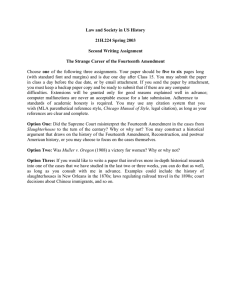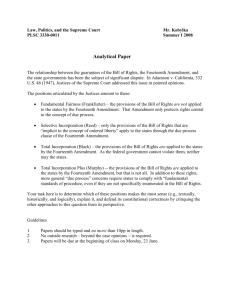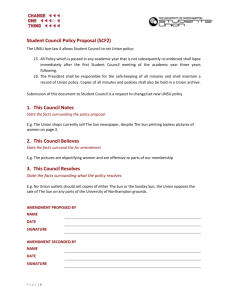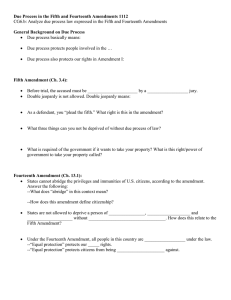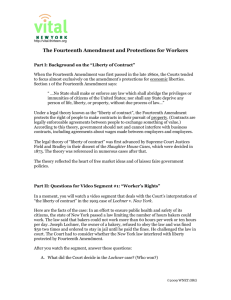The Amendments Handout
advertisement
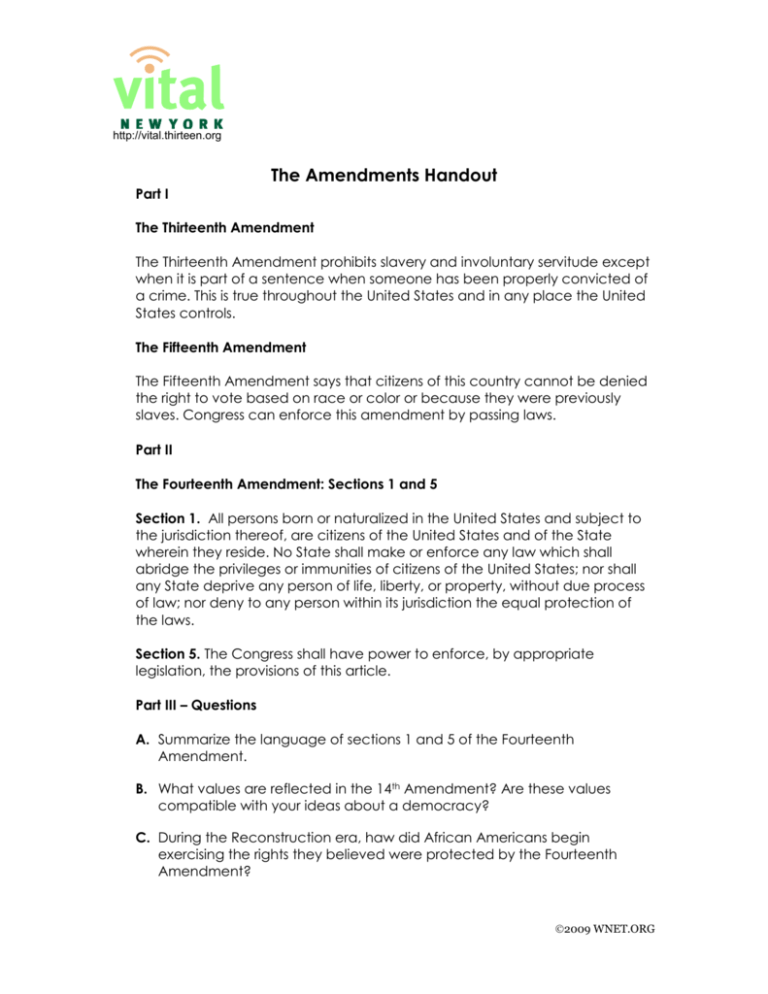
http://vital.thirteen.org The Amendments Handout Part I The Thirteenth Amendment The Thirteenth Amendment prohibits slavery and involuntary servitude except when it is part of a sentence when someone has been properly convicted of a crime. This is true throughout the United States and in any place the United States controls. The Fifteenth Amendment The Fifteenth Amendment says that citizens of this country cannot be denied the right to vote based on race or color or because they were previously slaves. Congress can enforce this amendment by passing laws. Part II The Fourteenth Amendment: Sections 1 and 5 Section 1. All persons born or naturalized in the United States and subject to the jurisdiction thereof, are citizens of the United States and of the State wherein they reside. No State shall make or enforce any law which shall abridge the privileges or immunities of citizens of the United States; nor shall any State deprive any person of life, liberty, or property, without due process of law; nor deny to any person within its jurisdiction the equal protection of the laws. Section 5. The Congress shall have power to enforce, by appropriate legislation, the provisions of this article. Part III – Questions A. Summarize the language of sections 1 and 5 of the Fourteenth Amendment. B. What values are reflected in the 14th Amendment? Are these values compatible with your ideas about a democracy? C. During the Reconstruction era, haw did African Americans begin exercising the rights they believed were protected by the Fourteenth Amendment? 2009 WNET.ORG

